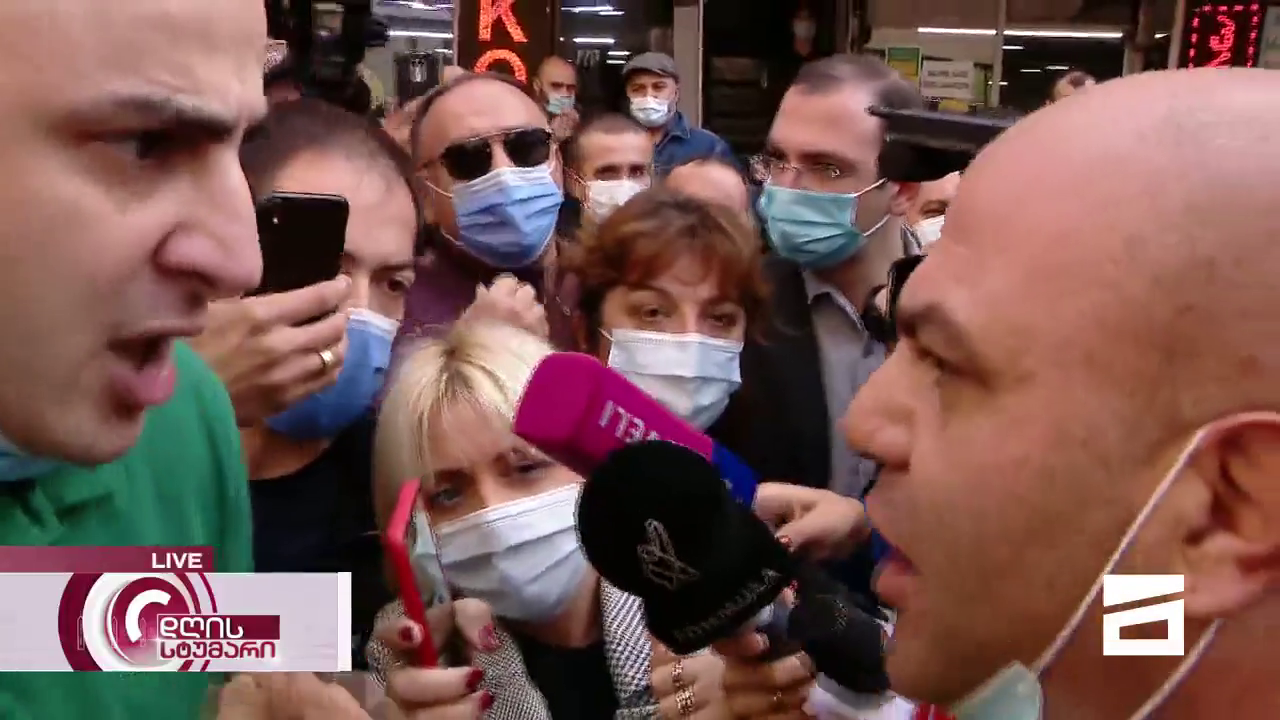
Over 20,000 people have been fined in Georgia for not wearing facemasks in enclosed spaces, OC Media has learnt.
On 12 June, the government introduced new rules to halt the spread of the coronavirus including a requirement to wear a facemask in enclosed public spaces, with a ₾20 ($6) fine for violations.
According to information obtained from the Ministry of Internal Affairs, up until 30 September, 20,811 people were fined for not complying with the rule.
New restrictions were introduced on Tuesday extending the requirement to wear masks to all public places, indoors or outdoors.
The decision by the Interagency Coordination Council came as the number of cases of COVID-19 has continued to rise. Prime Minister Giorgi Gakharia led the council from self-isolation after himself testing positive for COVID-19 several days earlier.
On Wednesday, 2,295 new cases were confirmed over the previous 24 hours, a new record.
Following Tuesday’s announcement, Amiran Gamkrelidze, Director of the National Centre for Disease Control, urged those participating in political demonstrations to observe the rules and to wear facemasks.
‘The virus does not differentiate a rally… It’s all the same for the virus. We all have to take care of each other’s health’, Gamkrelidze said.

On Wednesday, Georgian rights group the Institute for Development of Freedom of Information (IDFI) criticised the manner in which the government had extended the fines to include outdoor spaces.
They accused the government of overreaching by not passing new legislation through parliament, which they said was in breach of the constitution and the rule of law.
Other new restrictions introduced on Tuesday included extending a prohibition on cafes and restaurants opening after 22:00 nationwide. The restriction was previously in place in the virus hotspots of Tbilisi, Mtskheta, Batumi and Imereti region, but the entire country.
It was also announced that distance learning would continue until 25 November in schools in Tbilisi, Rustavi, Marneuli, Gardabani, Telavi, Gori, Kutaisi, Zestaphoni, and Zugdidi.
This article was prepared with support from the Friedrich-Ebert-Stiftung (FES) Regional Office in the South Caucasus. All opinions expressed are the author’s alone, and do not necessarily reflect the views of FES.








